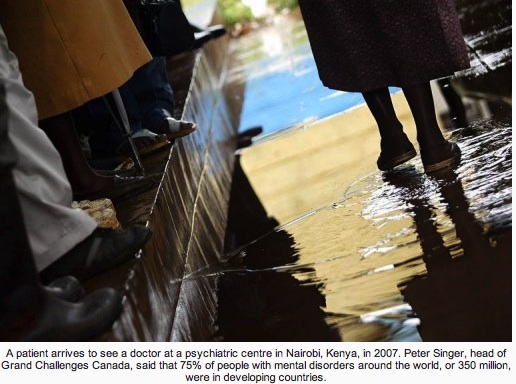Grand Challenges Canada, Toronto
10-Oct-2012
 On World Mental Health Day, Grand Challenges Canada funds a burst of 15 innovative projects spanning the globe — Asia, Africa, Caribbean
On World Mental Health Day, Grand Challenges Canada funds a burst of 15 innovative projects spanning the globe — Asia, Africa, Caribbean
Grand Challenges Canada, which is funded by the Government of Canada, today announced a landmark $19.4 million in support of 15 innovative, pioneering projects designed to improve mental health diagnosis and care in developing countries, many of them nations ravaged by conflict and disaster as well as poverty. The projects were selected through competitive scientific peer review from among 97 ideas submitted in response to a Grand Challenge to propose innovations that increase access, improve treatment, and address stigma for people with mental health disorders in developing countries.
Globally close to 450 million people have mental health disorders; more than 75% of that number live in developing countries. And, according to the World Health Organization, 85% of developing world patients with serious mental disorders receive no treatment at all.
“Mental health disorders are a leading cause of suffering and disability everywhere, but the problem is especially acute in the developing world,” said Dr. Peter A. Singer, CEO of Grand Challenges Canada. “There is very little funding for mental health innovations in low- and middle-income countries, where mental illness is the most neglected of many neglected diseases. It’s a terrible denial of human potential.”
“Canada has a long and proud tradition of fostering innovation to improve the lives of people living in some of the most desperate situations, ” said the Honourable Jim Flaherty, Minister of Finance for Canada. “Global Mental Health is a significant challenge which, left unaddressed, could undermine the health, social and economic futures of developing countries.”
15 projects in 14 low and middle income countries will test bold new ideas for addressing mental health issues, where patients are often severely stigmatized – even chained or locked up in the absence of understanding or care.
News release in full, click here
Example coverage by: Agence France Presse, click here; by the InterPress News Service, click here; by the BBC, click here
More coverage links and summary, click here